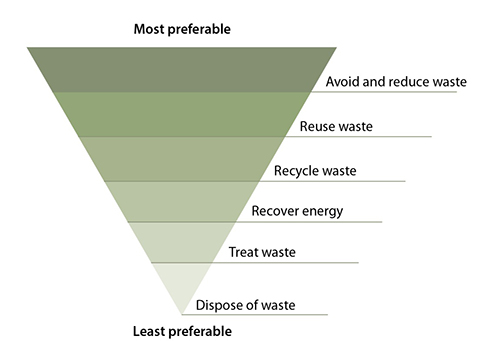10 Mental Health Tips for Stressed Vets and Nurses
The vet industry can be tough and protecting the mental health of you and your team can be a constant challenge. Here are 10 of our favourite tips for supporting the mental wellbeing of your veterinary practice.
Use that inner voice to your advantage
Vets and nurses are highly intelligent, highly motivated people. Unfortunately, that can also mean that they’re highly self-critical and can struggle to give themselves credit when credit is due.
Resist the urge to tell yourself to ‘harden up’ or that ‘there are plenty of people out there doing it tougher than you’ – all of us struggle from time to time and our struggles are real.
Tame that inner voice and use it to your advantage. It may seem corny, but take time every day to congratulate yourself for your achievements, no matter how small, and to remind yourself of the things you’re thankful for.
Instead of chastising yourself when things go wrong, treat everything as a learning opportunity. Instead of beating yourself up, accept that everyone makes mistakes and that every mistake gives us an opportunity to learn and improve.
Practice gratitude and forgiveness
A stressful working environment is made that much worse when there’s tension between team members. Thanking others for doing a good job and forgiving them when they slip up can make a huge difference to your outlook and theirs.
Consider charging more
Many vets are struggling with booming demand and limited resources. It can be a difficult decision to put your prices up, but struggling to keep your head above water is not the answer.
Consider raising your prices, either permanently or until demand subsides. This may or may not tamp down the pressure – but even if you’re still flat out, the improved profitability will help in other areas, such as staff recruitment and retention.
Try not to overextend your practice
Yes, it can be difficult to say no to new clients (or, more specifically, new furry friends), but if your practice is at capacity, this can be necessary. There simply aren’t enough vets in the world right now – you burning yourself out is not going to fix that.
Recruiting good vets and nurses is really difficult, so focus on retaining (and not burning out) the team that you have.
First, make sure you’re profitable (see above) then implement strict rules about how many clients and patients you and your team can reasonably see each day.
Choose when and how you’ll donate
Most practices will donate products and services to a good cause. That’s the nature of the industry and the people within it. Many vets give too much, however, and this can result in increased stress and lower profitability.
Choose when and how you’re going to donate. Decide in advance when and how much you can afford and allow for unexpected circumstances (acute patients arriving at short notice, etc.).
It’s difficult to say no, but you are doing your clients, patients and the community a favour by remaining viable.
Automate your practice
Automate as many repetitive and mundane tasks as possible to make you and your team more efficient. Accept bookings online (consider only accepting bookings online if it would free people up from the phones), automate reminders and use consult and sales templates to minimise the amount of data entry you need to do each day.
This will help to reduce stress levels and, as you’ll be doing less mundane stuff, it will make work more fun. As an added benefit, you’ll reduce missed appointments, missed charges, etc.
Systems like Panacea, our cloud-based veterinary practice software, allow you to automate the mundane daily tasks and simplify your workload. Click here to sign up for your complimentary demo and 30-day free trial.
Move difficult customers on
We all know how difficult it is to deal with customers who are rude, threatening or bullying. These customers are not only bad for your mental health but, because they’re often the first to dispute a bill and to badmouth you to others, they’re typically bad for business also.
Move them on.
There’s no shortage of clients and patients who need your services and who you can build positive relationships with.
Don’t put up with bad behaviour and never let a client blackmail you into treating their animal – this only encourages the bad behaviour.
While you’re at it, ask yourself if there’s anyone on your team who’s a negative influence. It’s hard enough to deal with difficult customers – it’s that much harder if you have a bully on your own team.
Find time out of the clinic
Yes, this does apply to you, as well as the rest of your team. Schedule time when you’re out of the clinic and your phone is turned off. Do something non-work-related, even if it means doing nothing at all.
Check in with others
Checking in on your team, and others within the industry, is not only likely to be beneficial for them, but it can also help improve your own mental health along the way.
Go deeper than simply asking ‘how are you?’. Put time aside to have meaningful conversations and to share your own experiences.
If you think someone is struggling, then be prepared to ask direct questions about their state of mind. Don’t be afraid to ask about their stress levels, whether they’ve been having dark or troubling thoughts or even if they’ve been considering self-harm. If you suspect that someone is struggling then don’t be afraid to encourage them to seek help – often our fear of awkwardness or embarrassment prevents us from offering help when it’s needed most.
Above all, reach out for help
Veterinary professionals, who can be better at providing help than at seeking it for themselves, are often reluctant to reach out for help. The reasons for this can be complex and many, but it’s important to remember that seeking help is a sign of strength, not weakness.
Approximately 20% of women and 15% of men will experience depression and a quarter of us will experience anxiety in our lifetimes. Evidence suggests that depression and anxiety rates are higher within the vet profession than within the general population.
Even as a trained medical professional it can be difficult to recognise the signs of depression and anxiety within yourself, particularly if you’re constantly on the run.
Check in with yourself regularly to assess how well you’re coping and whether you’re displaying symptoms of anxiety or depression. Use reputable online tools to assess yourself regularly. People are often surprised at their own results.
Most important, if you need help then don’t hesitate to reach out for it.
Both the New Zealand Vet Council and the Australian Veterinary Association provide excellent support and resources and your local vet industry body is likely to do the same if you live elsewhere.
If you’re experiencing anxiety or depression then seek medical help. All vet professionals know how important it is for animal owners to seek veterinary advice early and often. The same goes for you – don’t ‘battle on’ see your GP and get help when you need it.



